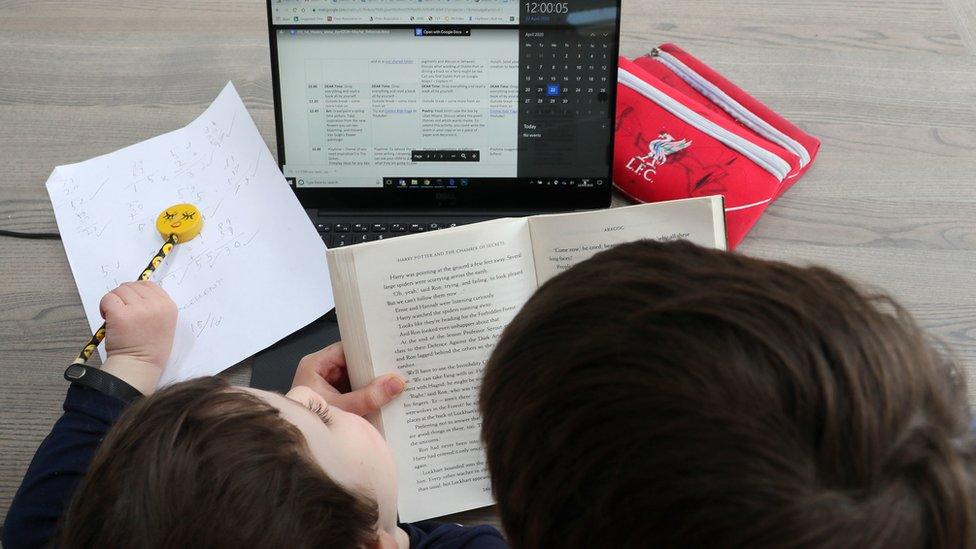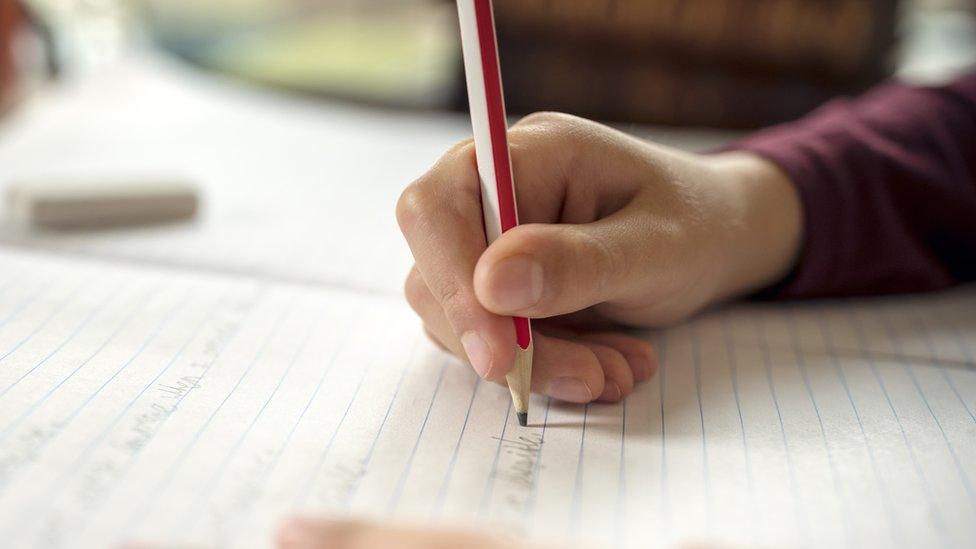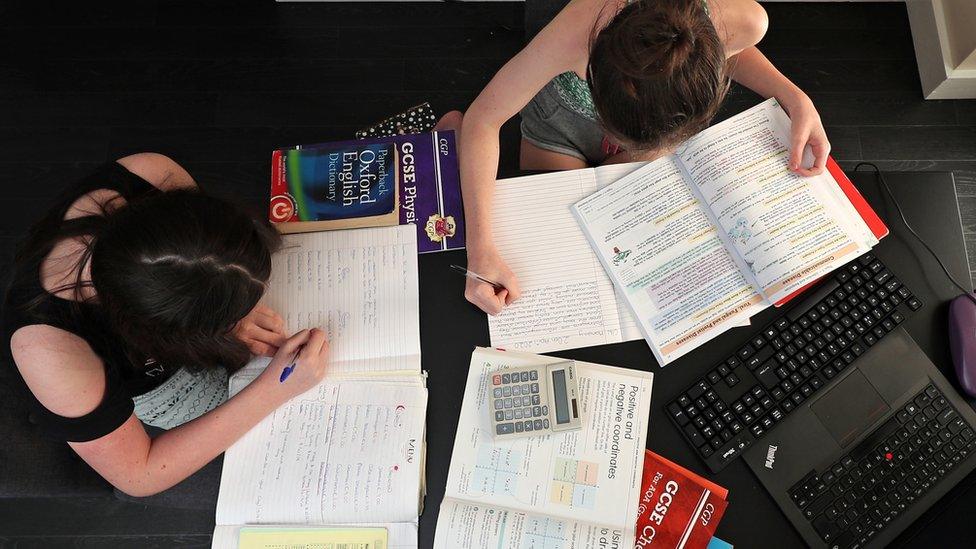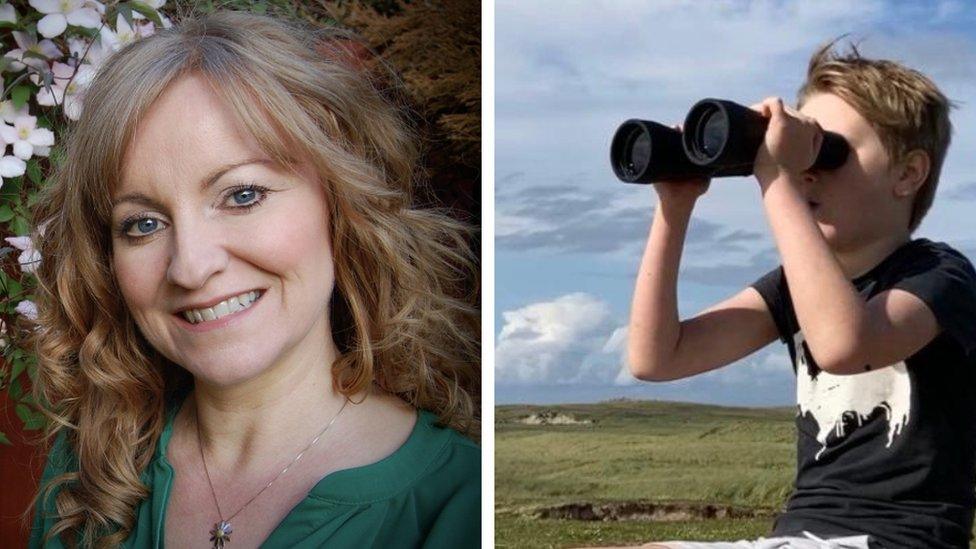Coronavirus: Dad learns to read in lockdown with children
- Published

Bryan Trainor told his children during lockdown that he was illiterate
A dad who could not read or write has faced his "deepest fear" in lockdown - revealing a secret of 16 years.
Bryan Trainor worked in construction from his early teens and has built a successful career, but said "school wasn't for me".
For years the County Antrim father-of-three had used tricks, and the help of his wife Heather, to disguise his illiteracy.
Home schooling during lockdown left nowhere to hide.
His wife is a nurse, and he would be home alone with a 16, 13, and seven-year-old when schools closed.
But telling his "biggest secret" has been a triumph for the 56-year-old, who began to learn with his children.
Finding the right words
"My kids and I have a great relationship and this secret I felt was going to show them I was weak and most importantly stupid," Bryan said.
"Initially, I avoided the conversation and ignored it at all costs.
"Then my wife sat me down and explained this could be a good idea, you know use Covid-19 to an advantage."
He reached out to Parentline NI, who helped him "find the right words" to tell his kids.
Nichola Greene, service manager of Parentline NI, said the service was a "huge hit" when schools closed in March from parents worried they did not have the skills to teach their children.
Some, like Bryan, were illiterate - some had never sent an email, or only had an flip phone.
One caller had to manage six kids under 10.

Parentline NI was a 'huge hit' for parents worried they couldn't teach their kids in lockdown
Ms Greene said parents had often found ways to hide their struggle and were terrified of telling their children.
"You could have children who went through care, and now they're parents and they just bypassed reading and writing because no one took an interest in how they were doing at school, or maybe they left school at 16 and went into a trade," she said.
'Dad, you can be the student'
It was three weeks before Bryan told his kids - pausing the TV, he told them he had something important to say.
"I uttered the words: 'I can't read or write and helping you guys with your schoolwork is harder for me than you know.'
"Instant relief is what I felt, my 13-year-old laughed and said to me: 'Da this is gonna be fun, you can be the student and I'll teach you for a change.'
"My 16-year-old hugged me and told me she knew.
"I completely underestimated my children and I have been so caught up in my own fears that I had pre-empted their responses."

Bryan said he "felt useful" and included in his children's studies
The next morning he was a student - his seven-year-old talked him through her studies with "great patience" as the elder two read out their assignments to him for feedback.
"My family found a way to make me feel included in their studies, I felt useful and they quiz me now on random words and it's fun can you believe," he said.
Ms Greene said Covid had forced a lot of people to get help and they should be proud of it.
"There are most certainly people out there in this society who are illiterate and Covid triggered them having to find additional support and they should be celebrated," she said.
"They very much could have said, 'we'll just shut books up, go outside and play' - and they didn't."
'The right attitude'
Bryan wants more people who struggle to read and write to reach out.
"Not being able to read or write doesn't make me stupid it just makes me illiterate - something in time I can overcome with the right attitude," he said.
"I learn in a different way, more physical if you like and I can teach my children my methods.
"To anyone out there who is struggling or knows someone who is struggling, remind yourself and them that our biggest enemy is the thing between our ears and we tend to listen and feed it more than we should."
- Published15 April 2018

- Published19 September 2020
